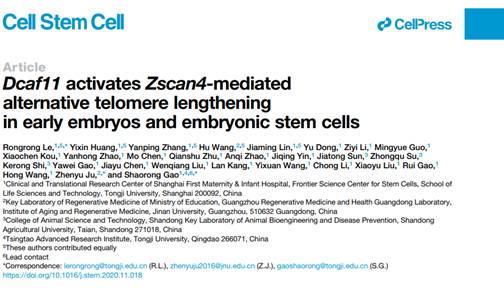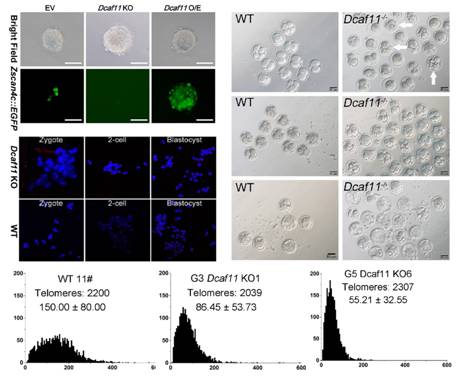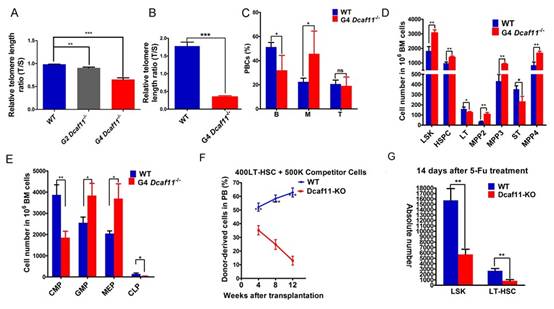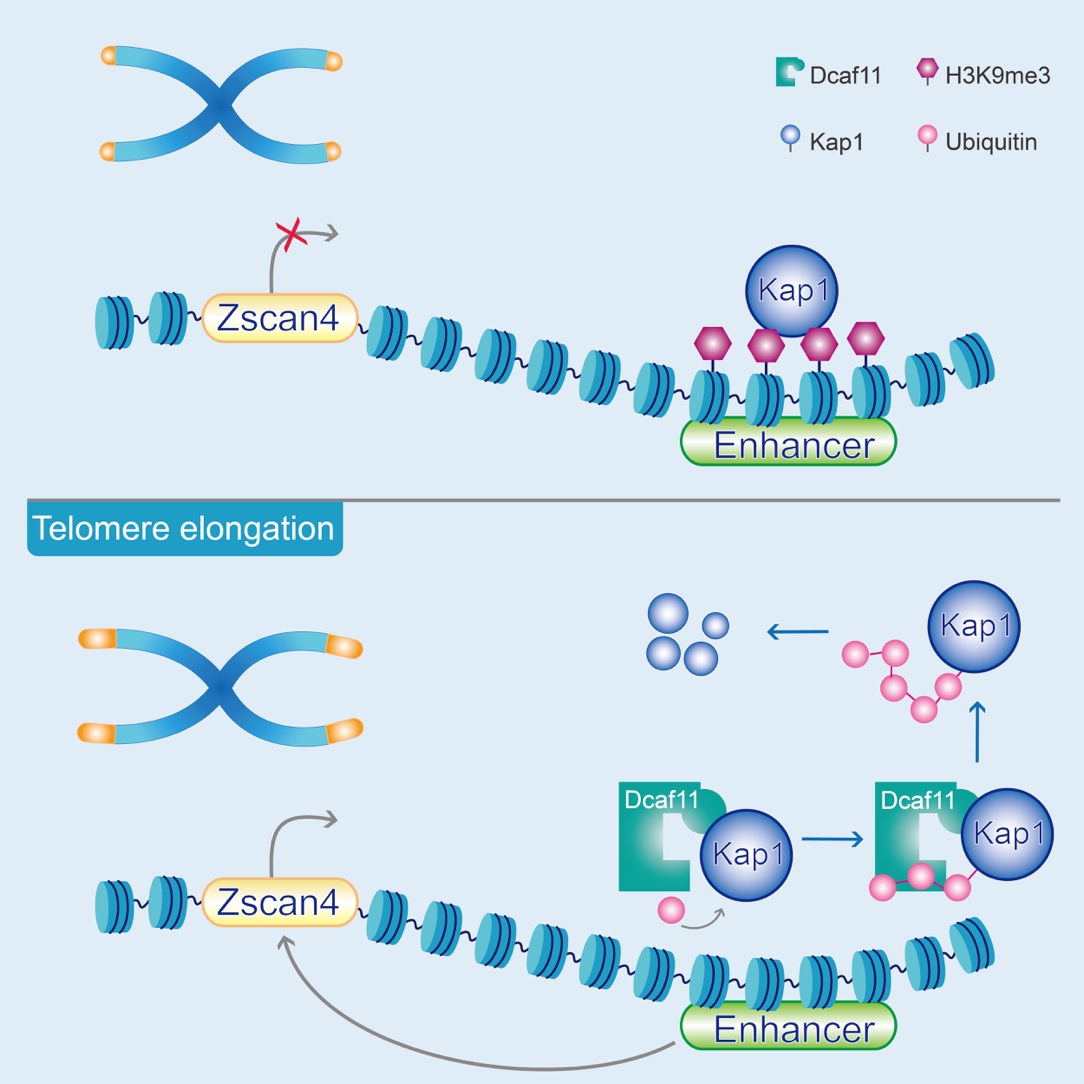On December 24, a paper entitled “Dcaf11 activates Zscan4-mediated alternative telomere lengthening in early embryos and embryonic stem cells” was published on Cell Stem Cell by Tongji research team headed by Prof. GAO Shaorong, jointly with Jinan University research team headed by Prof. JU Zhenyu.

Telomeres reside at the end of chromosomes and play essential roles in maintenance of genomic stability. Telomeres shorten with increasing age, which is closely associated with aging syndrome. Early embryos adopt a telomerase-independent mechanism known as alternative lengthening of telomeres (ALT) to elongate telomeres. Due to the scarcity of embryonic material, the molecular details of telomere elongation in early embryos remain enigmatic.

To dissect the molecular details of ALT-mediated telomere elongation in early embryos, the team used the proteomic technique and embryo micro-manipulation technique to obtain the proteomic information of mouse pre-implantation development. Based on this study, the team performed a screen in ESCs and identified Ddb1- and Cul4-associated factor 11 (Dcaf11) as an essential factor. Depletion of Dcaf11 led to reduced telomere sister-chromatid exchange (T-SCE) and impaired telomere lengthening through a telomerase-independent manner in embryos and ESCs. Overexpression of Dcaf11 facilitated somatic cell reprogramming and promoted telomere elongation in pluripotent stem cells. Dcaf11-deficient mice exhibited gradual telomere erosion with successive generations and compromised hematopoietic stem cells (HSCs) activity. Zscan4 is the major downstream effector responsible for Dcaf11 induced telomere extension and Dcaf11 targets Kap1 for ubiquitination-mediated degradation, leading to the activation of Zscan4 and telomere elongation. Furthermore, we identified a distal enhancer of Zscan4, which is activated by Dcaf11 in a direct manner via the release of Kap1. At telomere region, Dcaf11 reduces the occupancy of Kap1 and heterochromatic H3K9me3. Thus, Dcaf11 plays an essential role in ALT-mediated telomere elongation in early embryos and ESCs.

To conclude, this study identified Dcaf11 as a vital ALT factor to elongate telomeres in early embryos and ESCs. Mechanistically, Dcaf11 targets Kap1 for ubiquitination-mediated degradation, leading to the activation of Zscan4 downstream enhancers and the removal of heterochromatic H3K9me3 at telomere/subtelomere regions. Thus, Dcaf11 plays an essential role in ALT-mediated telomere elongation in early embryos and ESCs.

About the authors:
LE Rongrong, an assistant professor of Tongji University, HUANG Yixin, a PHD candidate of Tongji University, WANG Hu, a professor of Jinan University, LIN Jiaming, a Master’s student of Tongji University, are the first authors of this paper. Professor GAO, shaorong, Professor JU, zhenyu, and assistant professor LE Rongrong are the corresponding authors of this paper.
Full-text paper “Dcaf11 activates Zscan4-mediated alternative telomere lengthening in early embryos and embryonic stem cells” is available at https://www.cell.com/cell-stem-cell/fulltext/S1934-5909(20)30582-8#.